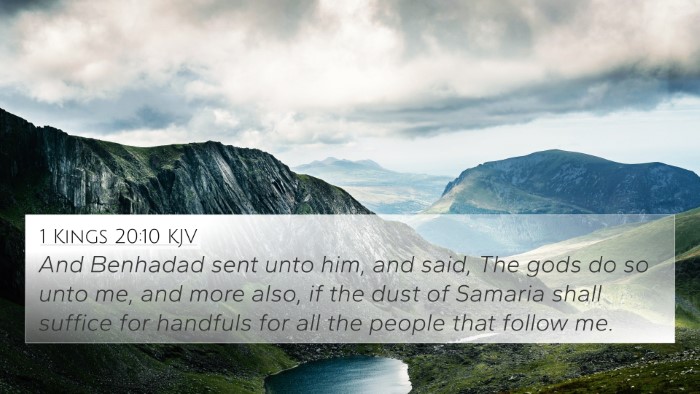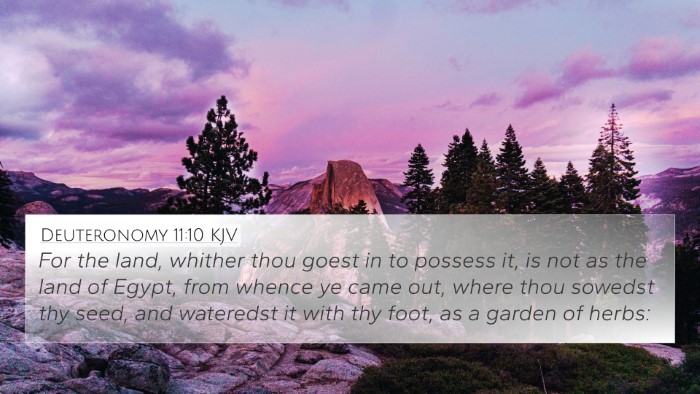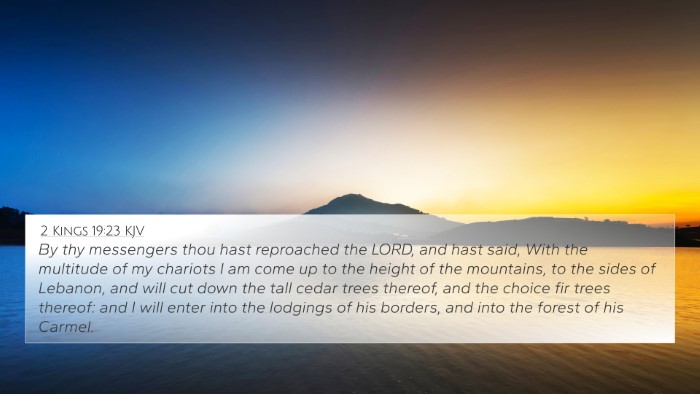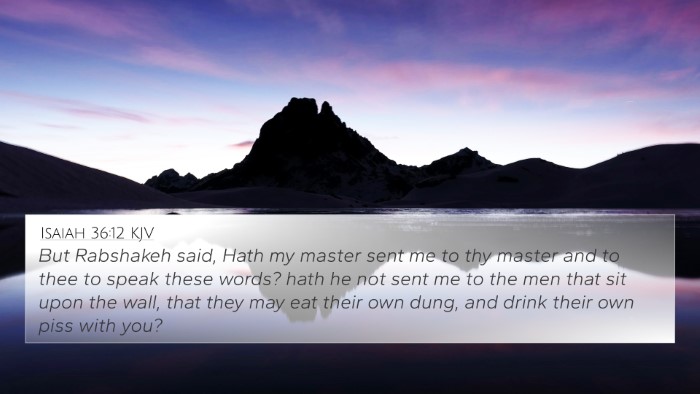Understanding Isaiah 37:25
Verse: Isaiah 37:25 - "I have dug and drunk water, and with the sole of my feet have I dried up all the rivers of the besieged places."
Summary of Meaning
This verse, articulated by King Sennacherib of Assyria, displays his arrogance and assumption of control over the nations he has besieged. It reflects his misunderstanding of divine sovereignty and the futility of human pride before God’s power.
Commentary Insights
This verse serves as a critical observation on the pride of earthly rulers and their missteps against divine authority. Drawing from the rich insights of Matthew Henry, Albert Barnes, and Adam Clarke, we can delve deeper into its meaning.
Matthew Henry’s Commentary
According to Matthew Henry, this verse highlights the boastfulness of Sennacherib. He believed he had complete dominion over the land, crediting himself for the victories over fortified cities. Yet, Henry emphasizes the absurdity of such claims when measured against the Almighty’s ability, reminding readers that it is God who ultimately decides the fate of nations.
Albert Barnes’ Commentary
Albert Barnes notes that Sennacherib uses a metaphor of digging and drinking as a boast of his military exploits. He suggests that the king's words reveal both his challenging spirit and his ignorance of the power of God. Barnes elucidates the spiritual lesson in recognizing that victories are not solely due to human endeavor but rather the allowance of God’s providence.
Adam Clarke’s Commentary
Adam Clarke draws attention to the fact that Sennacherib’s claims of drying up rivers symbolize his perceived ability to conquer, suggesting not only military strength but also complete control over nature itself. Clarke, however, implies that such claims are ultimately moot compared to God's authority who can alter the course of nature and the destiny of nations with His command.
Connections and Cross-References
Understanding Isaiah 37:25 involves exploring its connections with other scripture. Here are some relevant Bible verse cross-references:
- Isaiah 10:15 - "Shall the axe boast itself against him who chops with it?" - A reminder of God’s dominance over the proud.
- Psalm 2:1-4 - "Why do the nations rage, and the people plot a vain thing?" - The futility of the nations’ plans against God.
- James 4:6 - "God resists the proud, but gives grace to the humble." - God’s opposition to pride.
- Isaiah 37:33-35 - God promises deliverance for Jerusalem, emphasizing His control over events.
- 2 Kings 19:28 - God's reaction to Sennacherib's blasphemy demonstrates His ultimate power.
- Proverbs 21:30 - "There is no wisdom or understanding or counsel against the Lord." - Illustrating God’s unmatched wisdom in all matters.
- Isaiah 14:13-14 - The pride of Babylon compared to the humility required by God showcases the ultimate insignificance of human boasting.
Thematic Connections
This verse and its implications span various themes within the scriptures:
- Pride and Humility: The contrast between Sennacherib’s boastfulness and God’s sovereign authority.
- Divine Sovereignty: Affirms that all victories are under God's command, as seen in God's deliverance of Jerusalem.
- Human Folly Against Divine Wisdom: As with many rulers in biblical accounts, Sennacherib's folly serves as a warning against self-reliance and pride.
Conclusion
Isaiah 37:25 offers profound lessons on the dangers of pride and the overarching authority of God in human affairs. By examining inter-Biblical dialogue through cross-referencing various scriptures, one can gain a richer understanding of God's nature, sovereignty, and the appropriate posture of humility before Him.
Tools for Further Study
For readers seeking to deepen their understanding through Bible cross-referencing and thematic connections, consider exploring:
- Understanding a Bible concordance for thematic studies.
- Using tools like a Bible cross-reference guide to link related themes across scripture.
- Engaging in cross-reference Bible study methods to discern deeper meanings.
By utilizing these tools, one can easily identify connections between Old and New Testament themes, engage in a detailed cross-reference between Gospels, and enhance one's biblical literacy and appreciation through careful study.






